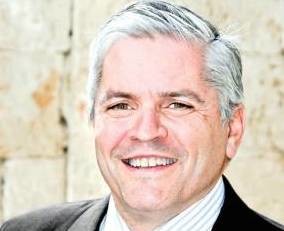Guarding our good judgement in places of refuge
This past week in Israel, the challenge of running a modern day state against the backdrop of a 3,000 year old tradition again came to the forefront. Tens of thousands of commuters, including thousands of Israeli soldiers returning to base Sunday morning, were confronted with trains not in service due to critical work on the tracks that could have been done on Shabbat but for the vehement objections of some of the chareidi parties which threatened to bring down the government.
There are two sides to every story, and it is no small challenge to ensure that the traditional character of the Jewish state is preserved, while ensuring that the country can run without compromising the safety and security of its citizens. (Electricity is generated and hospitals remain open, as do highways, on Shabbat, yet there is need of much dialogue on this topic.
It is fascinating that this debate is being revisited in the Israeli press as we prepare to read the portion of Shoftim, which opens with the obligation to appoint judges and a police force, and includes as well as the mitzvah of a Jewish monarchy in the land of Israel. There is a fascinating detail noted by the Lubavitcher Rebbe on this portion, which may shed light on the aforementioned controversial discussion.
The Opening verse of our portion (Devarim16:18) tells us: “You shall appoint Judges and guards in all your gates that Hashem gives you … who must judge Israel with Justice.”
Maimonides (Rambam Sefer haMitzvot, Positive Mitzvah 176), quoting the Sifri, tells us this mitzvah applies to all of our gates — even in the diaspora. There is, according to Maimonides, a mitzvah to appoint a Jewish court even outside of Israel.
Yet, the Sifri (Bamidbar 35:11) continues, if a person commits an accidental homicide necessitating his running to one of the six cities of refuge (Arei Miklat), such cities were not created outside of the tribal lands of Israel. (This is based on the verse saying, “These are the cities of refuge” [Numbers 35:15]).
Given that both are the judges and the cities of refuge are part of Judaism’s mechanism for ensuring justice in society, why can the former exist anywhere whereas cities of refuge can only exist in Israel?
Contradictions often mean we need to redefine our terms, or at least our assumptions. Is anything that happens to us really an accident, or does it always carry a message and perhaps even a responsibility?
Why, after all, should a person who accidentally caused someone’s death be liable at all?
As an example, regarding a person who accidentally falls from a roof (Devarim 22:8), we are exhorted to build a railing for safety purposes so that there will “be no blood on the house when the faller falls.”
The implication is that the person was meant to fall, the only question being why he fell from this particular roof. Seemingly, the person liable for an accidental death was in need of character refinement.
And while the judges necessary to determine that verdict need to be in every Jewish location, the actual character refinement meant to take place in a city of refuge, which was essentially a city of Levites, could only take place in Israel.
There is something about the environment in Israel that lends aid to character refinement in a way that cannot happen for a Jew anywhere else.
The reading of Shoftim always falls at the beginning the month of Elul, which leads up to Rosh Hashanah and Yom Kippur and is the month associated with teshuva. So this mitzvah of appointing judges and its connection (at least in the Sifri) with cities of refuge, must be intricately connected with teshuvah.
It is easy to understand how appointing judges in all our gates is deeply connected to repentance and our preparations for Rosh Hashanah and Yom Kippur. If we want to atone for our past mistakes and transgressions and do better this year, we need to judge our actions, past and present carefully, and we need to place those judgments in all of our “gates.”
Rav Chaim Vital (the well-known student of the Ari, quoted in the Talelei Orot on Shoftim) suggests that the verse here is in the singular (lecha) because “every man has a number of ‘gates’ through which external influences (both positive and negative) enter his body: the gates of sight, hearing, smell, speech. … To protect himself man must establish judges … that carefully examine these influences and determine whether they are of benefit.”
Perhaps this represents the impact of the proper environment on the process of rehabilitation and character refinement. And that is why the cities of refuge only function in the land of Israel, the ultimate environment for growth and character development for a Jew.
Indeed all of the mitzvoth and discussions in Torah regarding geographic imperative — all the way up to the focus on the building of a temple, a sanctuary for G-d in Jerusalem — are really all about creating an environment where one can so deeply experience Hashem’s presence that one almost cannot help but be impacted in a positive way. (That may be why the cities of refuge were actually Levite cities; Levites served in the Temple and would therefore be expected to create a more sensitive, ethical and holy environment.)
While the State of Israel needs to prioritize the safety and security of its citizens, it must never allow itself to forget the value of a 4,000 year old tradition that includes the creation of a land where Hashem’s presence is constantly felt.
Meanwhile, we must do more to create a more sensitive environment where we can take refuge, in order to experience what the world could be like: in our homes and communities as well as our schools and public and business institutions.
Shabbat Shalom from Jerusalem.
Contact Rabbi Freedman: Columnist@TheJewishStar.com

 48.0°,
Light Rain
48.0°,
Light Rain 




